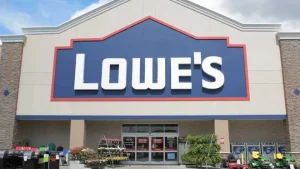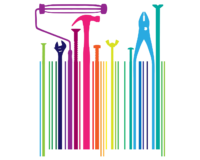How blockchain can help reduce retail theft

Theft in the retail sector is on the rise year after year. The challenging global economic situation and various crises are exerting significant pressure on our daily lives, which is undoubtedly influencing the incidence of theft in retail.
Can Blockchain help to reduce it?
According to the findings from the National Retail Federation’s 2022 Retail Security Survey, losses in the retail sector due to stolen goods increased to $94.5 billion in 2021, up from $90.8 billion in 2020. Some retailers have resorted to locking away certain products to prevent theft, which, unfortunately, may lead to decreased sales as consumers are unable to access the merchandise.
It comes as no surprise that retailers are constantly exploring new concepts and technologies to mitigate theft. For instance, Lowe’s is actively engaged in Project Unlock, which aims to harness emerging technology to combat theft while simultaneously enhancing the customer experience.
As described by Josh Shabtai, Senior Director of Ecosystem Practice at Lowe’s Innovation Labs, Lowe’s is experimenting with RFID chips to activate specific Lowe’s power tools at the point of purchase. “So if a customer attempts to steal a power tool, it won’t work,” he explained. RFID chips are readily accessible to retailers and are cost-effective to implement and utilize.

According to the National Retail Federation’s 2022 Retail Security Survey, 38.6% of retailers have already implemented or plan to implement RFID systems. What makes RFID even more intriguing is its potential integration with blockchain-based technologies, allowing for the creation of a transparent, tamper-proof record for tracking in-store purchases.
“Through Project Unlock, a unique ID is registered and assigned to each of our power tools. When that product is purchased, the RFID system activates the power tool for use. At the same time, the transaction is visible to anyone, as this information is recorded on a public blockchain network,” stated Josh Shabtai.
Project Unlock leverages the Ethereum blockchain, and what makes it even more interesting is the utilization of NFTs (non-fungible tokens). NFTs are employed as smart tags for products within the project, enabling the tracking of purchase status. Each product under Project Unlock is associated with a pre-minted non-fungible token (NFT), or a digital twin, which undergoes a status change upon purchase.
“A product’s NFT undergoes a status change when it is either sold by Lowe’s, if it has been stolen, or if the status is unknown. All of this information is publicly visible to customers and resellers, as it is recorded on the Ethereum blockchain. We have essentially built a purchase authenticity provenance for Lowe’s power tools,” explained Mehdi Sarkeshi, Lead Project Manager at Project Unlock.
By combining digital IDs (NFT tokens) with physical items, retailers can generate and store more accurate information about what exactly was stolen, where it was stolen from, and from which batch of products.
Furthermore, it is interesting to note that the retail industry is embracing this idea. For example, the asset verification platform Real Items has entered into a memorandum of understanding with SmartLabel, a digital platform that generates QR codes for brands and retailers to provide consumers with detailed product information. Real Items intends to implement “digital product passports” with SmartLabel products in the future. Real Items utilizes the Polygon network to store product information. It’s worth emphasizing that this model differs from Project Unlock, as it solely employs a blockchain network to record information about specific items.

Despite the potential benefits blockchain can offer in combating in-store theft, retailers may exhibit reluctance to adopt the technology for various reasons. Blockchain’s association with cryptocurrency, which has faced negative perceptions due to its involvement in criminal activities, is one such concern.
Nonetheless, Josh Shabtai remains optimistic, underscoring that Lowe’s Innovation Labs believes it’s crucial to explore new technologies to determine their viability. “Through Project Unlock, we have demonstrated the value of blockchain technology. We hope this can serve as a proof point for other retailers considering a similar solution,” he commented. Shabtai also mentioned that Lowe’s Innovation Labs plans to expand its solution beyond power tools in the future.





